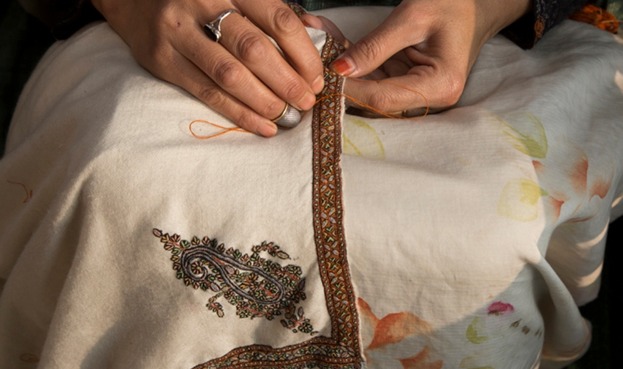Srinagar, Aug 04: Handicrafts and Handloom Department, Kashmir, on Monday announced the release of Rs 33.34 lakh for the implementation of its Karkhandar Scheme across the Kashmir Division.
This significant financial allocation, disbursed to the respective Assistant Directors of Handicrafts and Handloom, underscores the Government’s commitment to preserving and promoting the rich artisanal heritage of the region while ensuring the welfare and economic upliftment of craftsmen.
The Karkhandar Scheme, notified in 2021, is a landmark initiative designed to revive languishing crafts like pottery and foster sustainable development of the craft sector in the UT of J&K. Implemented by the Directorate of Handicrafts and Handloom, the scheme aims to empower artisans, enhance skill development, and boost the livelihoods of craftsmen through structured interventions.
Highlighting its role in revival of languishing crafts, a spokesperson of the Handicrafts and Handloom Department, Kashmir, said the Karkhandar Scheme focuses on preserving traditional crafts such as walnut wood carving, silver filigree, carpet weaving, Kani shawl weaving, Khatamband, papier-mâché, and others like Sozni, tapestry, and engraved copperware, which face a shortage of skilled artisans.
“It prioritises crafts at risk of extinction, ensuring their legacy endures. It also facilitates skill transfer from master craftsmen, including National/State/Shilp Guru awardees, to the younger generation,” he said, adding meritorious trainees from departmental training centres receive advanced training in nearby Karkhanas to enhance their expertise and productivity.
The spokesperson said trainees receive a monthly stipend of Rs 2,000 during the six-month training period, disbursed via direct bank transfer. “Karkhandars are provided Rs 25,000 in two equal instalments to cover logistics, tools, equipment, and raw materials, along with Rs 2,000 per trainee per month to support their efforts,” he said.
This financial release of Rs. 33.34 lakh will empower Assistant Directors, in the first phase, of Anantnag, Budgam, Baramulla, Kulgam, and Srinagar districts to accelerate the scheme’s implementation, ensuring artisans receive the necessary resources, training, and support to thrive.








